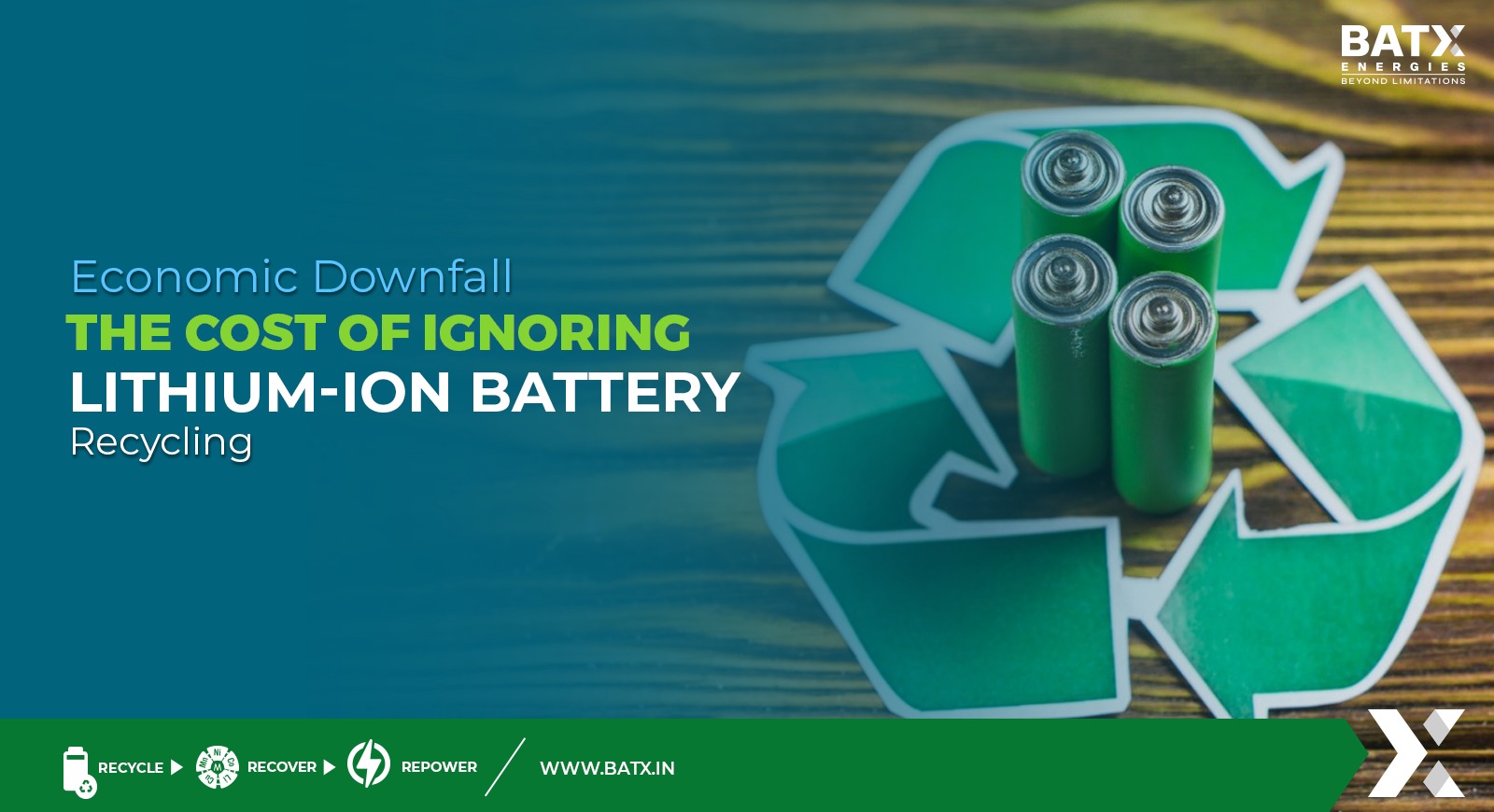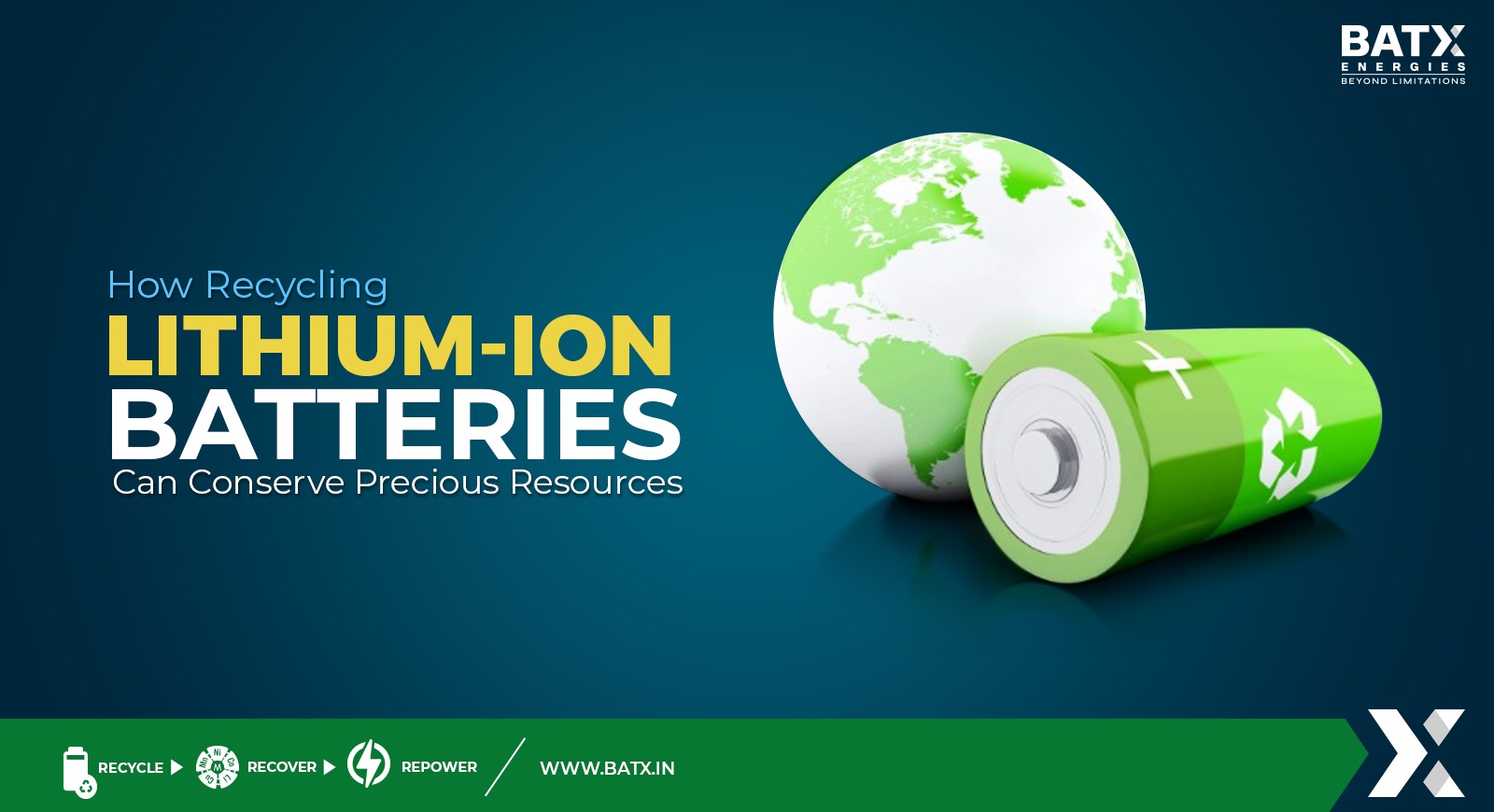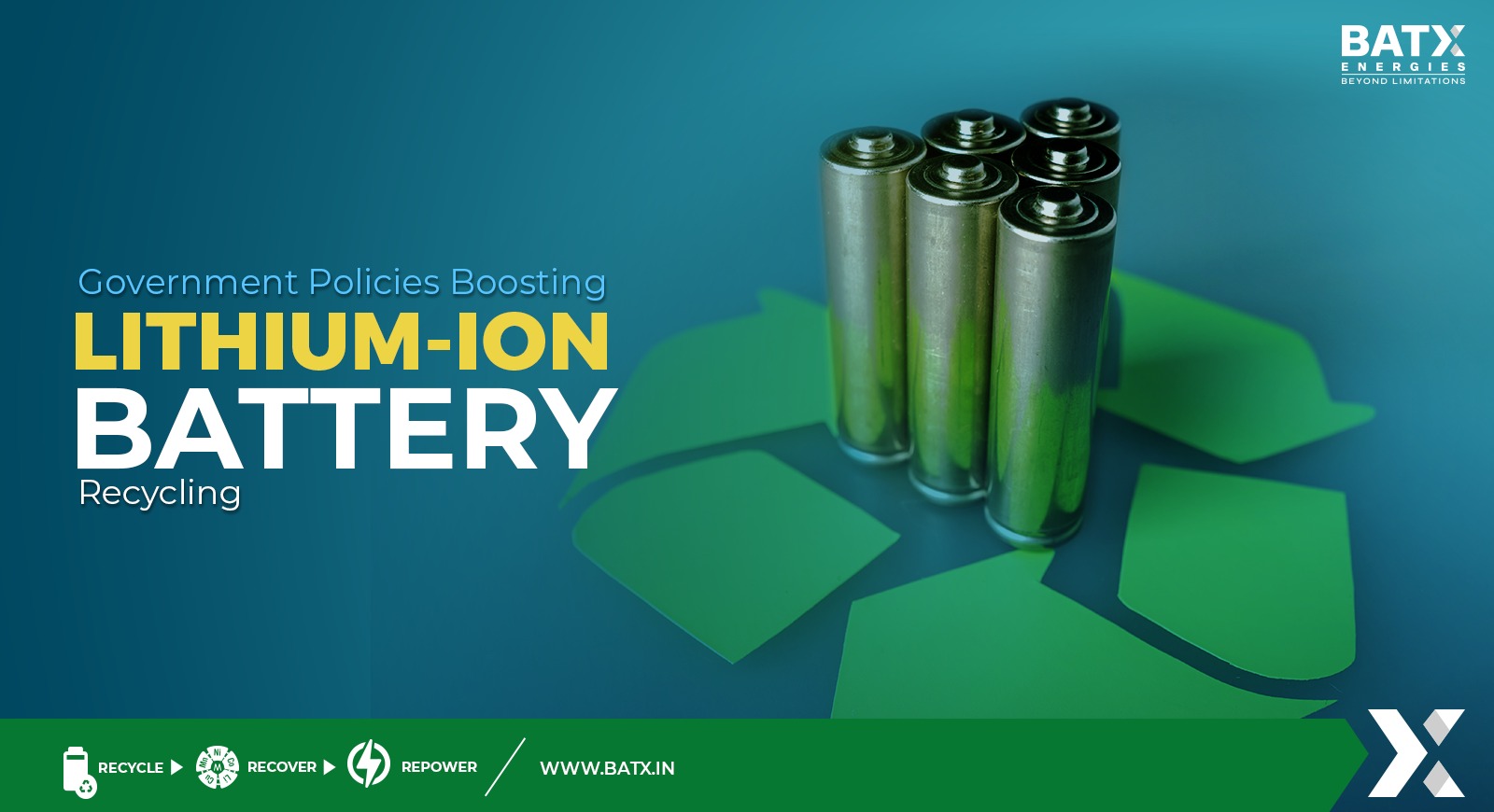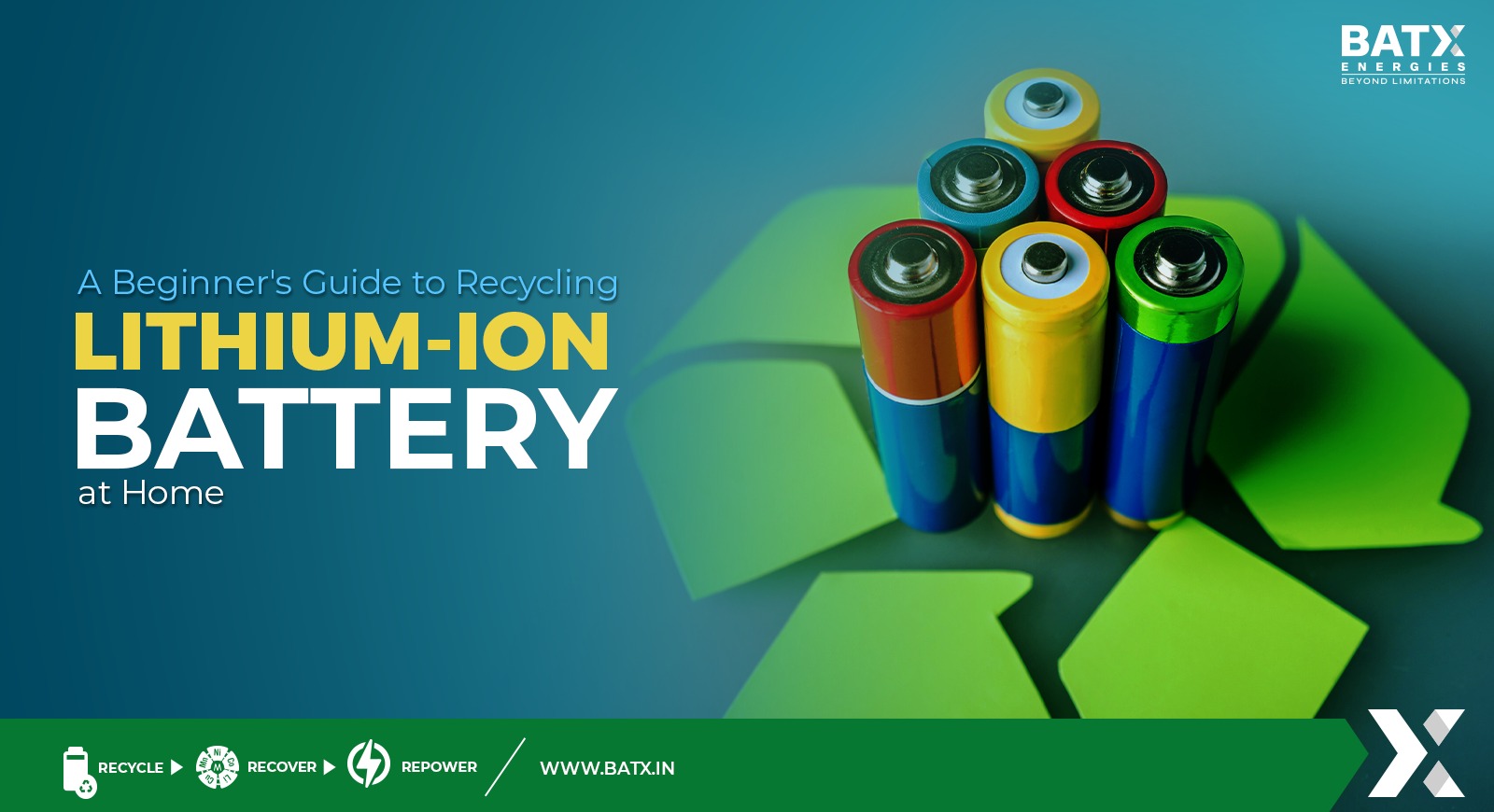Lithium-ion batteries, the lifeblood of the modern world, can be dangerous if not recycled properly. Unfortunately, the rate at which lithium-ion batteries are being used is more than the rate at which they are being recycled. There is a negative cost of ignoring lithium-ion battery recycling. Stay with us, this blog will explore the hidden cost of ignoring lithium-ion battery recycling.
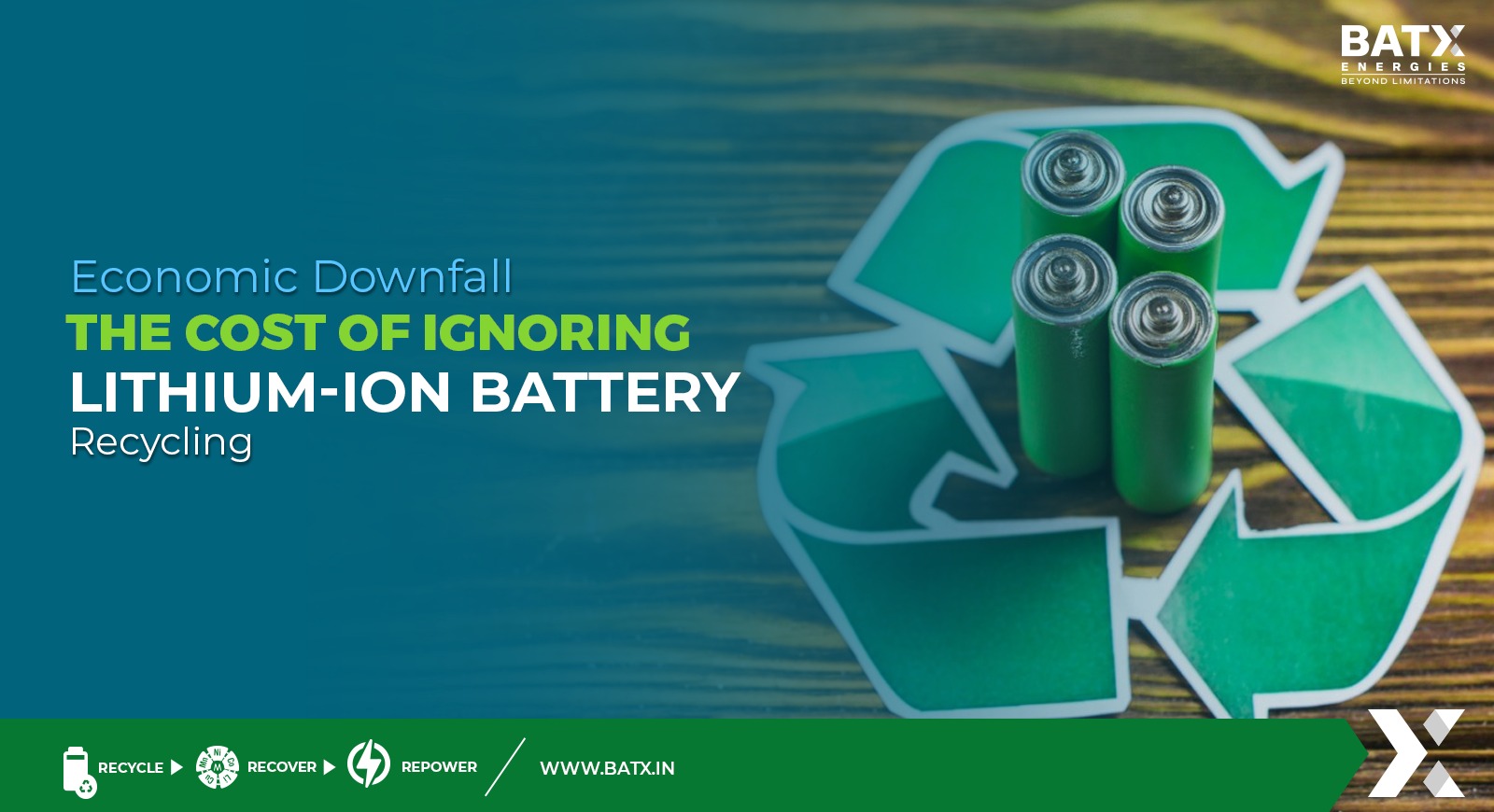
Table Of Contents:
Economic Downfall: The Cost of Ignoring Lithium-Ion Battery Recycling
Cost of Ignoring Lithium-Ion Battery Recycling
Environmental Impacts
Leakage of Harmful Chemical
Fire Hazard
Ecosystem Disruption
Economic Consequences
Waste Of Valuable Resources
Scarcity of Materials
Missed Economic Growth Opportunity
The Path Forward: Promote Sustainable Practices
Education and Awareness Campaigns
Work With Certified Recycler
Conclusion
Cost of Ignoring Lithium-Ion Battery Recycling
Generally lithium-ion batteries are safe, but if disposed of improperly they are unsafe. From negatively impacting the environment to causing economic downfall, the cost of ignoring lithium-ion battery recycling should be addressed.
Environmental Impacts
Let’s dive into the first cost of ignoring lithium-ion battery recycling i.e. environmental impacts. Improper disposal of lithium-ion batteries hurts the environment.
Leakage of Harmful Chemical
Lithium-ion batteries contain toxic metals such as cobalt, manganese, and nickel. If disposed of as ordinary garbage, the toxic metal can reach the environment leaking harmful chemicals. These chemicals contaminate the water supplies and ecosystem, harming human health and the environment.
Fire Hazard
Lithium-ion batteries are prone to fire or explosions. The Li-ion fire contains highly flammable gases and toxic smoke. Discharging of gases and smoke into the environment degrades the quality of air. There are numerous health risks of air pollution. Some of them are cardiovascular and respiratory diseases. Additionally, the fire can damage the habitat leading to a loss of lives and resources.
Ecosystem Disruption
Improper disposal of lithium-ion batteries pollutes the water systems, air, and soil, leading to ecosystem disruption. It results in loss of biodiversity impacting their growth and survival. Decreasing soil fertility threatens the environment in the long term. It reduces agricultural productivity and increases food security concerns.
Economic Consequences
There are numerous economic consequences of ignoring lithium-ion battery recycling.
Waste Of Valuable Resources
The lithium-ion battery is a valuable resource if managed properly. If the potential benefits of recycling are not utilized, it leads to economic losses. Recycling lithium-ion batteries facilitates raw material extraction (valuable resources for manufacturing batteries). Hence improper recycling of batteries damages the ecosystem, increases the cost of manufacturing new batteries, and spoils nature’s beauty.
Scarcity of Materials
As discussed earlier, recycled lithium-ion batteries generate valuable resources. However, improper recycling leads to the depletion of these valuable resources. Since the rate at which lithium-ion batteries are recycled is less than the rate of consumption, this results in a scarcity of materials. It increases pressure on natural resources. Since the raw materials need to be dug from the Earth’s surface, the available resources will soon be insufficient.
Missed Economic Growth Opportunity
Recycling lithium-ion batteries is a lengthy process, executed in numerous steps. There is a need for manpower to perform these steps effectively. Hence, the recycling process creates employment opportunities. If the recycling of the batteries is ignored it decreases economic growth and development.
The Path Forward: Promote Sustainable Practices
Since the cost of ignoring lithium-ion battery recycling negatively impacts the environment, public health, and the country’s overall economic growth, the general public must be aware before nothing is left for upcoming generations. Here is how to move forward in promoting sustainable practices.
Education and Awareness Campaigns
Education and awareness campaigns are important tools for increasing knowledge and action of ignoring lithium-ion battery recycling. This campaign’s main goal is encouraging individuals to implement sustainable practices and support recycling to protect the environment. Addressing societal challenges increases public knowledge and leads to positive changes. Such campaigns empower one to use lithium-ion batteries till the end of their life cycle. Instead of disposing of them as ordinary garbage, they are encouraged to send them for recycling. These actions of the general public decrease the negative cost of ignoring lithium-ion battery recycling.
Work With Certified Recycler
Used lithium-ion batteries must be sent to special recycling places. But it is important to consider whether the one you trusted for recycling the batteries is certified. Only working with a certified recycler will make your step towards sustainable practice worth it. They ensure their recycling place is under the Workplace Safety Act. Upholding industry standards, they contribute to success and sustainability practices in lithium-ion battery recycling.
Conclusion
The cost of ignoring lithium-ion battery recycling is associated with a heavy price tag. It directly impacts Earth- a place inhabited by living things, contributing to various health risks, resource depletion, and missed economic growth opportunities. Batx Energies commits to a sustainable future through responsible recycling. Prioritizing a better future for upcoming generations, we can be your trusted recycler partner!
